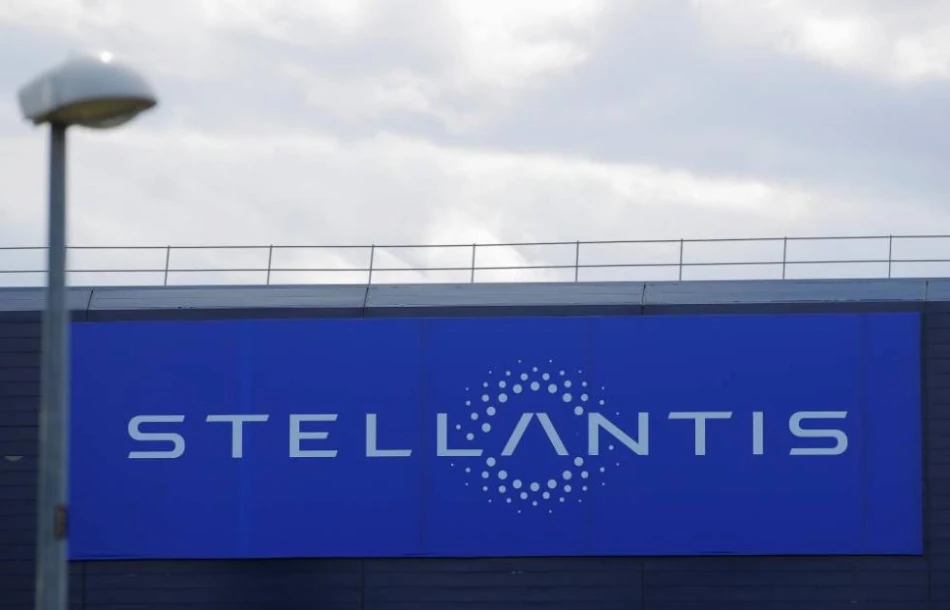
Stellantis CEO Dismisses Fuel-Powered Car Ban as 'Unrealistic'
Europe's 2035 Combustion Engine Ban Faces Growing Industry Revolt
The European Union's ambitious plan to ban fossil fuel vehicle sales by 2035 is increasingly under fire from major automakers, with Stellantis CEO Antonio Tavares becoming the latest industry leader to call the timeline "unrealistic." His comments reflect a broader industry pushback against Brussels' green transition goals, as manufacturers grapple with sluggish electric vehicle sales and intensifying Chinese competition.
Industry Giants Sound the Alarm
Tavares, who heads the world's fourth-largest automaker encompassing brands like Jeep, Peugeot, and Fiat, told French newspaper Les Echos that the EU's dual targets—cutting greenhouse gas emissions by 55% by 2030 and eliminating combustion engine sales by 2035—need "flexibility" to balance environmental goals with industrial viability.
His stance echoes a growing chorus of skepticism from European automotive leaders. BMW proposed last Friday to delay the ban until 2050, while Mercedes-Benz CEO Ola Källenius, who chairs the European Automobile Manufacturers' Association, recently branded the 2035 target as "unachievable."
The Perfect Storm Facing European Automakers
The industry's resistance stems from multiple converging pressures that have emerged since the EU Parliament approved the combustion engine ban in March 2023, despite German reservations.
Electric Vehicle Market Stagnation
European EV sales have hit a plateau, undermining the transition timeline. Consumer adoption has slowed due to charging infrastructure gaps, higher vehicle costs, and range anxiety—challenges that mirror early EV market struggles in the United States before federal incentives and Tesla's supercharger network gained momentum.
Chinese Competition Intensifies
Chinese manufacturers like BYD and Nio are flooding European markets with competitively priced electric vehicles, leveraging state subsidies and integrated supply chains. This mirrors how Chinese solar panel manufacturers disrupted global markets in the 2010s, forcing Western competitors to restructure or exit entirely.
Brussels Under Pressure to Compromise
The mounting industry pressure has already yielded results. In March, the European Commission reduced medium-term carbon dioxide emission reduction targets, signaling potential flexibility on climate goals when faced with economic realities.
European Commission President Ursula von der Leyen is set to launch a "strategic dialogue" with automakers next week, coinciding with the Munich International Motor Show. This represents a significant shift from the EU's previously rigid stance on the transition timeline.
Market and Investment Implications
The potential policy revision carries substantial implications for investors and manufacturers. A delayed ban could provide breathing room for European automakers to develop competitive EV platforms and supply chains, potentially preserving market share against Chinese rivals.
However, policy uncertainty may also discourage the massive capital investments needed for electrification. Tesla's early commitment to electric-only production, supported by consistent U.S. policy signals, offers a contrasting model of how regulatory clarity can drive innovation and market leadership.
The Path Forward
Tavares emphasized the urgency of moving "from strategic dialogue to strategic action," warning against underestimating "the rapid decline of the European automotive industry." His call for "flexibility mechanisms" suggests the industry seeks graduated compliance pathways rather than hard deadlines.
The 2035 legislation includes a review clause allowing for assessment in 2026 and potential amendments—a provision that may prove crucial as political and economic pressures mount. The outcome will likely determine whether Europe can maintain its automotive industrial base while achieving climate objectives, or whether it will cede market leadership to more agile competitors from Asia and North America.
Most Viewed News

 Omar Rahman
Omar Rahman






